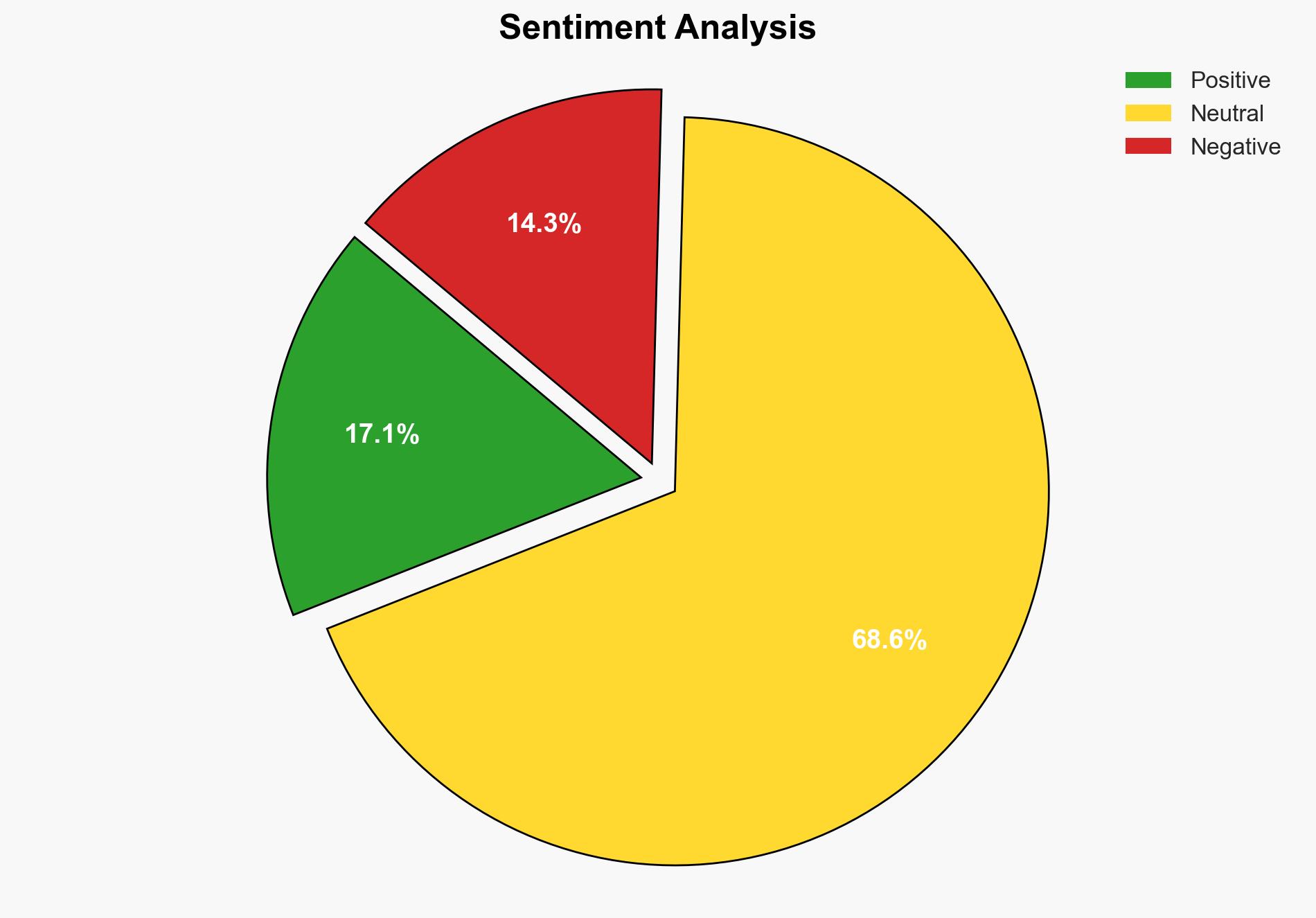Middle Eastern Monarchies in Sudans War whats driving their Interests – Juancole.com
Published on: 2025-03-21
Intelligence Report: Middle Eastern Monarchies in Sudan’s War – What’s Driving Their Interests
1. BLUF (Bottom Line Up Front)
The ongoing civil war in Sudan, which began in April, involves significant external actors, notably from the Middle East. The UAE and Saudi Arabia have been identified as key players, providing financial and military support to different factions within Sudan. Their involvement is driven by strategic interests, including countering Iranian influence and expanding regional power. The conflict poses a substantial humanitarian crisis and risks further destabilizing the region. Immediate diplomatic engagement and strategic realignment are recommended to mitigate these risks.
2. Detailed Analysis
The following structured analytic techniques have been applied for this analysis:
General Analysis
The civil war in Sudan is characterized by a complex interplay of internal and external factors. Internally, the conflict is a power struggle between the Sudanese Armed Forces and the Rapid Support Forces. Externally, countries like Saudi Arabia and the UAE have vested interests in Sudan due to historical ties and strategic objectives, such as countering Iranian influence in the Red Sea region. The UAE has expanded its economic influence in Africa, particularly in sectors like ports and logistics, while Saudi Arabia has leveraged religious and geographical ties. The strategic convergence between these monarchies has evolved, with divergences emerging on issues like political Islam, impacting their unified stance in Sudan.
3. Implications and Strategic Risks
The involvement of Middle Eastern monarchies in Sudan’s conflict exacerbates internal divisions and prolongs instability. The support provided to different factions increases the risk of a prolonged proxy war, threatening regional stability and security. The humanitarian crisis is likely to worsen, with significant implications for migration and regional economic disruption. The strategic rivalry between the UAE and Saudi Arabia, particularly in their support for different Sudanese factions, could lead to further geopolitical tensions.
4. Recommendations and Outlook
Recommendations:
- Encourage diplomatic dialogue between Sudanese factions and external actors to de-escalate tensions.
- Implement regional frameworks to manage external interventions and promote stability.
- Enhance humanitarian aid efforts to address the immediate needs of affected populations.
Outlook:
Best-case scenario: Successful diplomatic interventions lead to a ceasefire and a negotiated political settlement, reducing external influence and stabilizing the region.
Worst-case scenario: Continued external support for opposing factions results in a prolonged conflict, exacerbating the humanitarian crisis and destabilizing neighboring countries.
Most likely scenario: Ongoing tensions with intermittent clashes, as external actors continue to vie for influence, leading to a protracted and unstable situation.
5. Key Individuals and Entities
Significant individuals mentioned in the context of the conflict include Federico Donelli, Abdel Fattah al Burhan, Mohamed Dagalo, and Abigail Kabandula. Key entities involved are the Sudanese Armed Forces, the Rapid Support Forces, and the governments of Saudi Arabia and the UAE.





